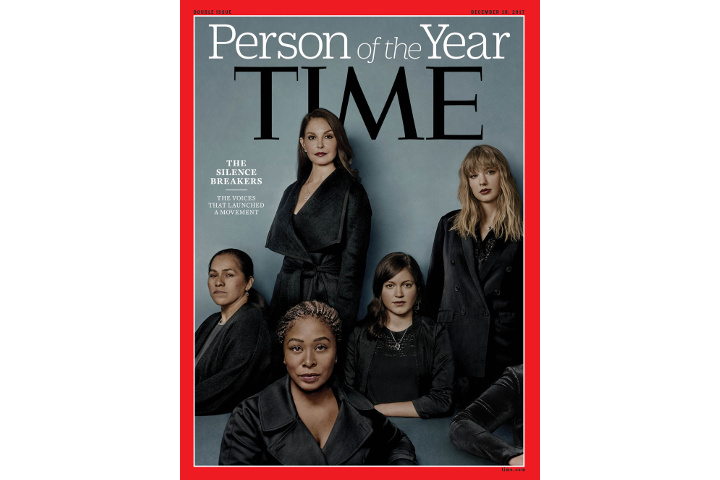Workplace harassment legislation recently introduced by the Canadian government is “incredibly important,” says an American lobbyist and activist who appeared last December on the cover of Time Magazine.

Adama Iwu became one of the most prominent faces of the #MeToo movement after she was groped by a man at a work function and refused to ignore or forget the incident.
She subsequently brought together 147 women to expose sexual harassment in California’s government, and appeared alongside four other women on Time’s cover as part of its “Person of the Year” issue.
In Ottawa this week, Iwu spoke to Global News’ Eric Sorensen about her journey and the importance of government action.
“I would never presume to tell government what they should do, but I do think that government leads and they have the opportunity to set the tone,” she said.
Iwu met with Employment Minister Patty Hajdu during her visit to the capital, and the two discussed recent Canadian legislation designed to overhaul the regulatory structure around how certain businesses and sectors are required to respond to allegations of sexual harassment.
“Talking to the minister about her legislation, it’s incredibly important that people are protected in their workplace, and every workplace. That those protections are the same for everyone. And to make sure it happens, I think that’s absolutely incredible, and that is the job of government,” Iwu said.
The lobbyist for Visa, who has established the WeSaidEnough foundation to help encourage change south of the border, also addressed the guilty verdict rendered Thursday in Bill Cosby’s sexual assault trial. She said it was a long time coming.
“It seems like things are changing. People come forward and they are being believed in ways that we’ve never seen before,” Iwu told Sorensen.
“They were able to fill an entire magazine cover of women who said they had been sexually abused by him. When I see verdicts like this, I really only think of the victims — the women who were brave enough to come forward and tell their stories and put themselves up to public ridicule. Some of the questions these women were asked in court were incredibly crude and invasive and horrible questions.”
READ MORE: #MeToo movement ‘furthers my loneliness,’ male sexual assault victims say
Asked about the online culture of misogyny that some say inspired the suspect in the recent van attack in downtown Toronto, Iwu said she doesn’t like to spend too much time talking about or glorifying men who believe they are entitled to women’s bodies. But backlash against the #MeToo movement and women’s empowerment is inevitable, and progress will take time.
“We are challenging very deeply ingrained and widely accepted power structures, and power never gives up power without a fight,” she noted.
“That’s really what we are doing here. We are trying to pull apart those power structures that systemically and systematically … hold people back and marginalize people.”



Comments